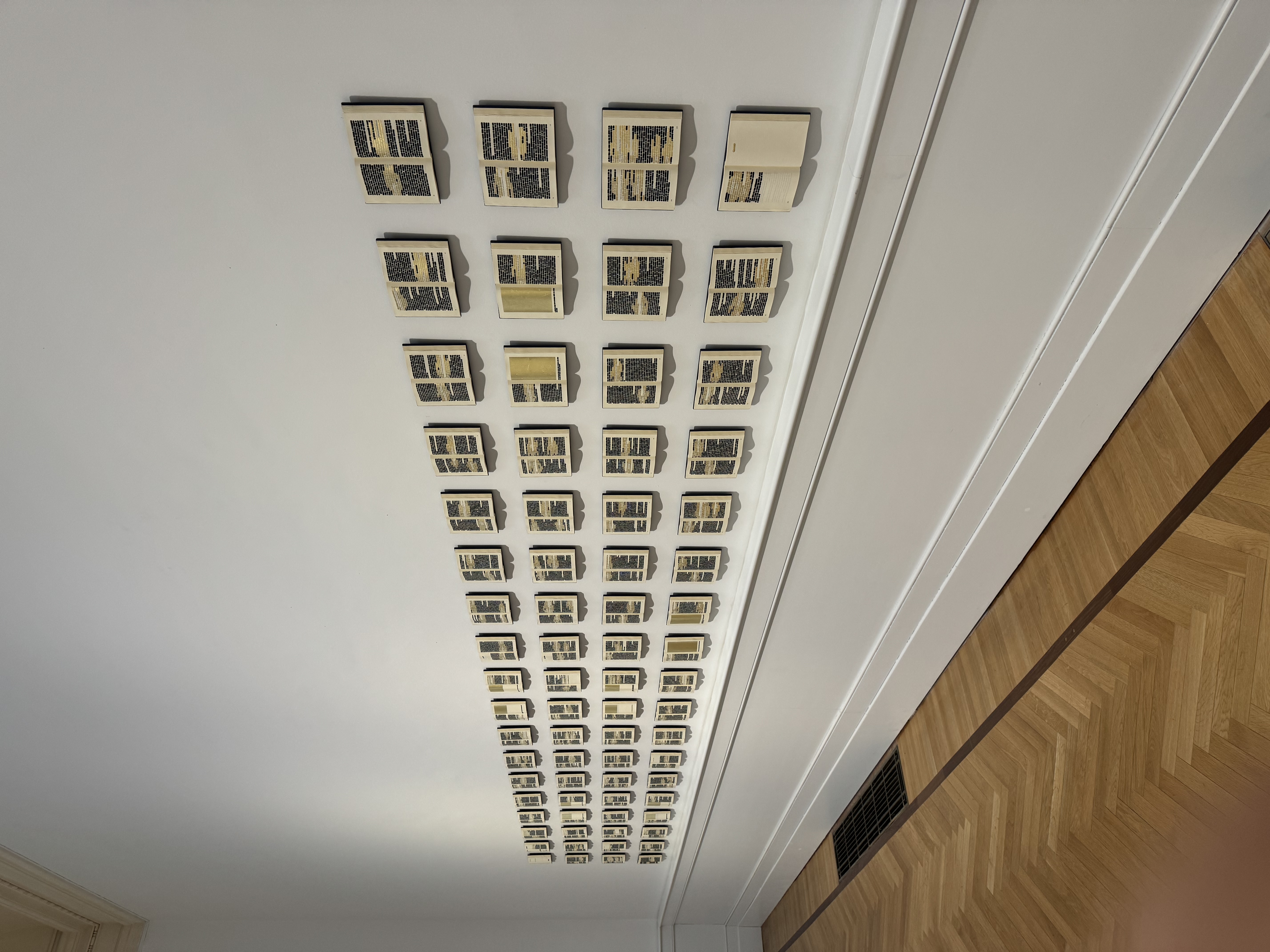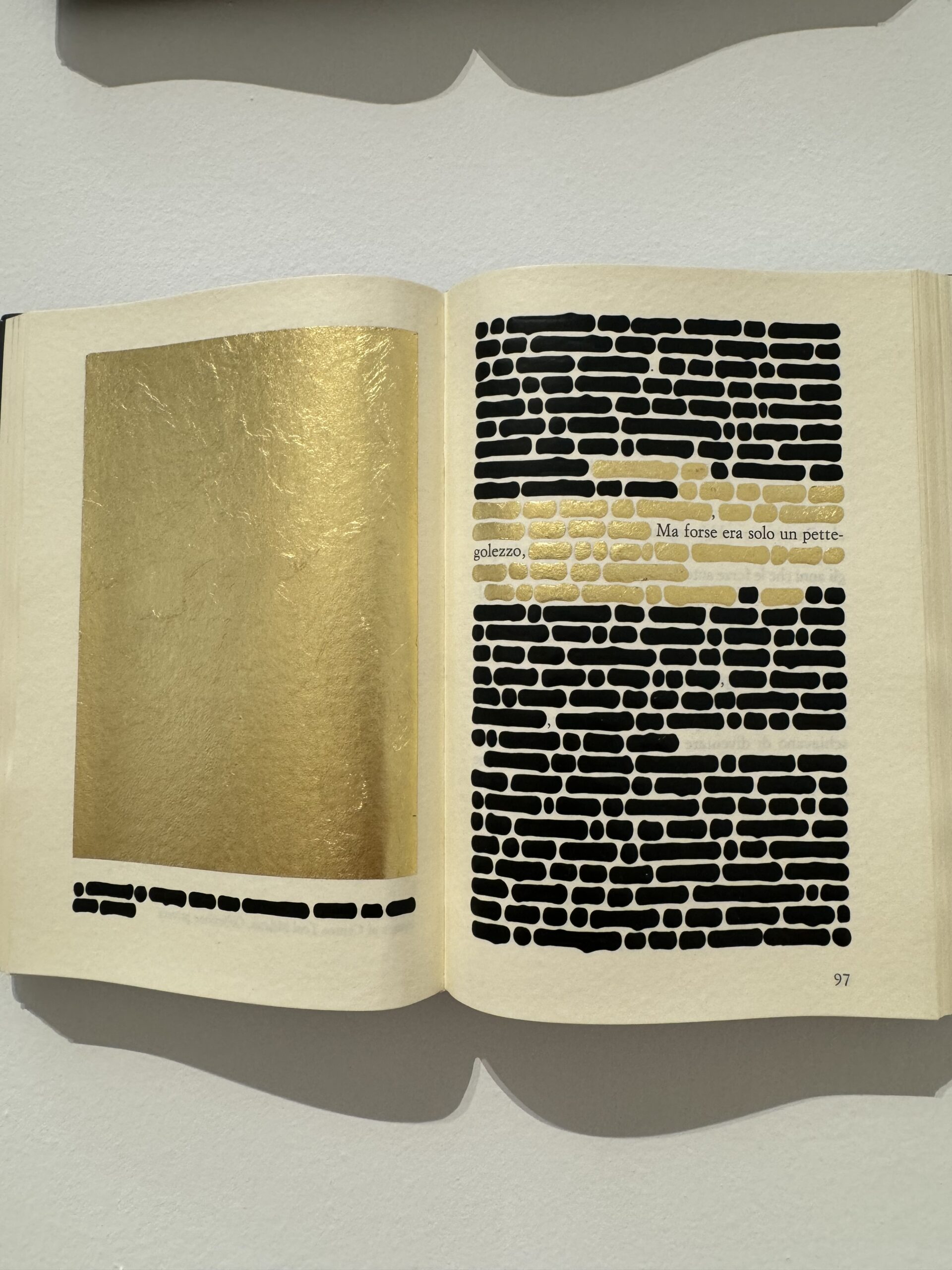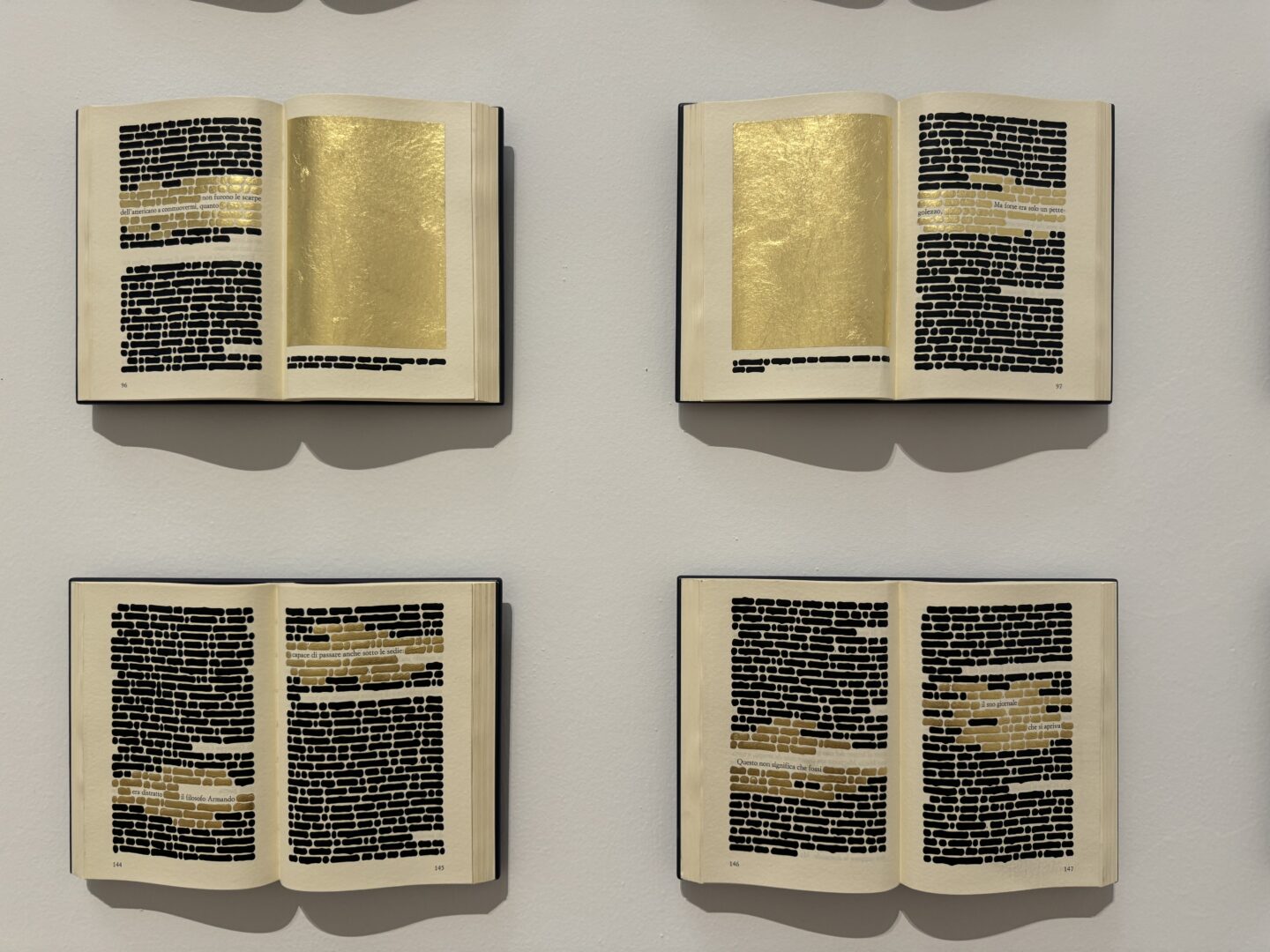
As you know if you’ve been reading my recent posts, I’ve been in Rome for a few weeks (part of a 50th-anniversary, start-of-the-next-decade, travel-while-we-still-can celebration), and we’ll be back there in a few weeks for most of the fall. Right now, though, we’re in London pivoting here for a walking adventure–not only did we want a break from Rome’s intense heat (and considerable humidity!), but we also needed to put in some non-Schengen days so as not to wear out our 90-day Schengen welcome before our flight home. . . .
And this morning, I’m realizing (perhaps belatedly!) that as much as I’ve enjoyed staying in touch with you here and on Instagram throughout a busy summer, I think I’d better take a blog break from the blog for a few weeks, although I’ll continue to post occasionally over here.
Before I decided this, I’d already put together most of my July Reading post, and I’m going to do a very quick edit this morning before we walk to the National Portrait Gallery from our little (SO little, this room is a Compact Double and wow! this bed is so, um “cosy”?) nest in Paddington / Kensington. . .

I say this every book post now, for those who are new here and as a reminder to regular readers: As usual, the numbering comes from my annual handwritten reading journal, and the italicized text below is directly transcribed from that journal’s pages (once upon a time, I simply included photographs of those pages, but too many of you found my handwriting tough to decipher, especially in the photographed format). Notes to myself, that is, so that I can remember a book and remember my response to it, rather than any attempt at a more polished, edited review.
I’ve used regular font for any additions to my journal notes and included references to any posts from my Instagram Reading account.
51. Mr. Loverman, Bernardina Evarista. Literary fiction; Domestic fiction; LGBTQ+, Ageing protagonist; Gay protagonist; Immigrant’s lives; Set in London.
A 70-year-old immigrant to London where he has lived, prospered, and raised two daughters with his wife of 50 years, tries to gather courage to come out, finally, as a gay man . . . so that instead of living with a woman who is always unhappy, angry with him, convinced that he is constantly out cheating on her with other women, he might spend the rest of his life with his true love (of a duration even longer than his marriage), Marcus.
Most of the novel is told in 1st-person from Barrington’s perspective, but his wife offers her version in several intervening chapters, so that we can see the harmful effect Barrington’s closetedness and his conformity with genered heteronormativity has on her. Her desire to be loved, emotionally and physically, the depression she’s suffered, the outlets she’s sought for relief.
So much humour here but also thoughtful and compassionate observation — not only of two couples, a family’s history — but also of the changing social mores over Barrington’s lifetime.
I read and wrote a bit about Evaristo’s Booker Prize-winning Girl, Woman, Other back in January 2020.
52. The Forbidden Notebook. Anna de Céspedes. Trans. Ann Goldstein. Foreword by Jhumpa Lahiri.
I have to speed up these entries [in my handwritten reading journal, which I’m transcribing in this post] because it’s July 19th, and I’m way overdue for writing up June reading on the Blog, I’m heading to Rome in a week, and I need to get books back to VPL.
So . . . another astonishingly forward feminist novel by Cuban-Italian de Céspedes (1911-1997).
A married mother of two young adults (son and daugher) herself barely 40, is moved to buy a notebook, compelled to have somewhere to write down thoughts, ideas, observations. But she doesn’t have even a drawer of her own where she can be sure no one else can discover her notebook, read what she’s written. And to find time and private space for that writing, she must write at night, clandestinely, and at the expense of sleep. Especially as her writing leads her to articulate her dissatisfactions with her situation, even as she quickly backs awy from those, horrified by her perceptions.
She finds herself being hard on her daughter, insisting the younger woman orient herself toward marriage and family life, even as she recognizes gradually her own engagement in, and satisfaction with, her work life — which was assumed by herself and others to be undertaken only to help out with the family budget.
And while she behaves as though she favours her son’s path, is more lenient with him, she finds herself irritated and disturbed by what she doesn’t know to call sexism — and she’s too confused, lacks the language to defend her daughter against it.
So much in this one that I shouldn’t be rushing over, but I need to get this desk cleared and my packing done.

53. Held. Anne Michaels. Literary fiction; Historical fiction; Memory; Time; Love; Generations; War.
This one I finally bought for myself, in hardcover — such a beautiful, thoughtful novel (as were her Fugitive Pieces and The Winter Vault).
A generation-spanning (4 of them) narrative that connects points in time and space in ways that the reader will puzzle and ponder and delight to connect. I’m rushing to write this before I have to pack up for a flight to Rome in a few days and thus very much giving the book short shrift here. But I can say that there is an emphasis — or perhaps more a gentle insistence? an unveiling — of liminal spaces that transcend our understanding of life and death, the persistence of energy. Photography as a medium for glimpsing and perceiving this. DNA as well, perhaps, children exhibiting character traits of an earlier generation. Memory, of course. The uncanny boundaries of love, of war. And stories, and friendship.
Beautiful, lyrical, ghostly, brilliant.
54. When in Rome. Liam Callanan. Travel fiction; Love story; Woman at mid-life; Religion; Rome.
Another interloper — pushed onto my list when I spotted it in a prominent, cover-out, shelf-talking position at my branch of VPL. Couldn’t resist since I will be in Rome very soon.
The premise: a single mom (daughter, 30, they’re good friends but daughter lives in another city, has her own life, a partner) is in Rome as a realtor who specializes in selling properties that served religious communities — desanctified churches to restaurants, convents to spas, etc.
But as soon as she sees this property — a convent which encloses several stunning acres not so far from Trastevere, she wants to save the convent for the dwindling number of nuns who still live and work there. And her adolescent inspiration to beome a nun is rekindled.
Complication: her best friend, Marcus, for whom there has always been a (reciprocal) love, passion — always kept at bay for various reasons, timing — has come to Rome hoping to work up the courage to declare his love and propose marriage.
And throughout this narrative of love, friendship, self-discovery, we are treated to tours of Rome, with peeks behind closed doors, quirky information about fountains, secret passageways, personalities, etc. If I’d bought it as an e-book, I’d be tempted to use the chapters as guides to the city.
Recommended as armchair travel and for a look at the possibility of mid-life re-direction.

55. The Drowning Woman. Robyn Harding. Psychological fiction; Women, friendship; homelessness.
Again, led astray by my eyes at the library. I was in the mood for another light, distracting book. Spending three weeks on my own will do that, I guess. Thriller — two women form an odd friendship. One, homeless, trying to find a safe place to park her car and get a night’s sleep, wakes by the beach and hears a woman crying. She ends up saving her from suicide by drowning.
Turns out both women have secrets and dangerous lives. But not all is as it seems. . . Absorbing enough to distract me, which is what I was looking for. The ending, though, seemed forced and unlikely. Maybe 7/10?
56. Vers d’autres rives. Dany LaFerrière. Literary memoir; Graphic memoir; Artist coming-of-age; Immigrant narrative; artistic heritage; Haiti/Haitian art and literature/Haitian culture; Canadian literature; French-Canadian literature. Haitian-Canadian writer/artist.
Posters on the Pont des Arts in Paris this spring — reproductions of pages from La Ferrière’s books — inspired me to request this from the library. A gorgeous, vibrantly illustrated book, text appears handwritten, emphasizes the act of writing and its appearance as complement to (or integral with) the illustrations.
Descriptions of island life in his childhood — people in his community, animals he knew, food — its getting, preparation, eating.
The wealth of Haiti’s culture, especially — he traces his artistic lineage, writes out poems by Haitian poets, describes encounters with various artists, writes about their “discovery” by the artistic world beyond Haiti.
57. Deaf Utopia: A Memoir and a Love Letter to a Way of Life. Nyle Di Marco and Robert Siebert; Memoir; Coming-of-Age; Growing up Deaf; Deaf Culture; Cultural History; Educational History; American Sign Language.
My sister recommended this memoir by American model, actor, deaf activist Nyle DiMarco (who won America’s Next Top Model and also, more remarkably, won Dancing with the Stars with professional dance partner Peta Murgatroyd).
It’s an entertaining and illuminating account of growing up as one of three deaf brothers born to deaf parents. DiMarco’s mother was a remarkable force — she pushed hard for her sons’ education within a public school system that favoured/insisted on lip-reading as a way to be better integrated into society than ASL supposedly allowed for. But as DiMarco argues from experience and research, lip-reading in a classroom, in a system, that favours the hearing students profoundly disadvantages deaf students and reinforces a stereotype that links inability to hear with low intelligence.
By contrast, as DiMarco’s mother taught him — and taught his teachers whenever she could — learning in an educational culture that honours and nurtures ASL as a truly functioning language capable of expressing ideas with richness and subtlety (and humour!) allowed deaf students to reach their potential more fully and thus benefits greater society by allowing them to contribute.
And perhaps the best recommendation for this book is that of my “baby sister” whose own hearing challenges weren’t recognized (by herself, by my parents, by her teachers) until her 20s, a bright little girl who likely taught herself to lipread and otherwise “filled in” those gaps in her hearing. (I share a much milder version of the same hearing pattern — hence her recommending the book to me). Her immediate response on finishing this memoir? She texted me: “I think I want to learn ASL now!”
Of particular interest to those with compromised hearing, but also with an interest in languages or education.
Ok, that’s it for my Way-back-then Books Read in July . . . I’m going to post a Chiuso Per Ferie sign here now — Closed for Holidays — but I will still be reading your comments, and eavesdropping on the lovely conversation that usually evolves here around your reading (or non-reading, if that’s your current situation). Beach books? Fireside books (as my Other Hemisphere readers turn towards Spring)? Recommendations (or the opposite)? All grist for our Book Chat mill . . .
And if you want to see where I’ll be reading next (heading out soon to find a book for tomorrow’s train journey), I’ll post photos on Instagram.
Back soon,
xo,
f
Thank you for posting pictures of this art exhibit! I learned the idea of blocking out sections in a book leaving specific words exposed in an art class several years ago. In this class, we used the pages (or pieces of pages) in collages. I did not have the foresight to imagine this technique as an art form in itself and I do not remember the name of the technique. “Ghosting” comes to mind but it is not likely correct. This exhibit is stunning, and the black and gold is dramatic!
Now back to reading about your July reads and finding some new reads for myself😉. Hope your adventures in London and onward are exciting and more importantly cool!! we are head to the Upper Peninsula of Michigan in a couple of weeks hoping for cooler too.
Held is gorgeous, any way you try to parse it!
Would you share your “compact double” hotel? The location sounds perfect for my solo December trip.
Author
The Montcalm Chilworth Townhouse. Here’s the tripadvisor take on it
I’ll miss your blog while you’re taking a break, but I know you’ll have lots to share when you come back. In the meantime, enjoy your time away.
I’m envious of your big trip and the variety you’ve packed into it. I’m in the midst of a big, long-awaited transition. My current home has just gone into escrow and now the panic of finding a new, smaller home begins. I find I’m making more time for reading this summer as a way of dealing with the stress of it all. I suspect a good bit of it is procrastination, too!
When In Rome sounds appealing to me, I’ll add it to my TBR list.
Enjoy your travels and I’ll look forward to your return to posting here.
As much as the book reviews themselves, what jumps out from these entries is the momentum towards your Rome trip – the sense of the departure hurrying near. But also the effect of solo living at home for a while. Such a varied selection of books. The human imagination is amazing.
My own list: ‘Never Had It So Good,’ by Dominic Sandbrook. Continuing my now compulsive deep dive into British social and political history since WW2, this time the period 1956-63. The end of the British Empire, the time of the Beatles, the Suez crisis, political scandals.
‘Thuderclap’, by Laura Cumming. Part memoir, part art history/life of the enigmatic Dutch artist Carel Fabritius, painter of The Goldfinch, who died in the Delft Thunderclap of 1654. Lyrical, fascinating, hugely poignant. I wrote this quote in my reading record notebook: “It is such a long journey out, this one, from where we came; this life, our life, the journey between the first and last shores”. Highly recommended.
‘The Naked Shore of the North Sea’, by Tom Blass. A journey round the North Sea coasts of Britain and of Europe north of France and south of Norway. Fascinating contemporary and historical accounts of the land, sea and communities.
‘Border’, by Kapka Kassabova. DNF. Utterly depressing journey along the border between Bulgaria, Turkey and Greece, from the Ottomans and Cold War menace to present day. There are only so many massacres, detention camps, forced movement of populations, abandoned villages, deep torpor and depression that one can take. A reminder tho that Europe is not all lovely progress and stability, and that dark emotions and memories are very present on the borders. All empires decay from the border…
‘Slow Road to Teheran’, by Rebecca Lowe. Author cycled from London through Europe and the Middle East to Iran. Compelling read, amazing physical feat across distance and searing heat. Many insights, but I did get a bit irritated by her journalist’s pursuit of the story sometimes seemingly at the expense of the safety of those who lived in repressive states.
Thank you Frances-books go to my TBR list, but Cancellatura or Erasing was a new art concept to me,so happy to learn about it! Enjoy visit to my favourite city!
Rebecca Makkai’s I Have Some Questions for You was on my TBR list for some time. I loved The Great Believers -her new novel was not a disappointment,it has all: a crime story,murder podcast and a lot of questions about family tragedies, friendships,love,life on campus and some darker ones,about power,racism,priviledge,sexual abuse,collective memory and many more
Monica Ali’s Love Marriage,set in London, is a poignant story about complicated engagement between Yasmin Ghorami,young MD and her fiancée Joe Sangster, fellow doctor . It is not only them,there are their families,different cultures and religions,all the components of modern identity but with a lot of burried secrets and past traumas
Maz Evans’ Over My Dead Body is a hilarious,funny and witty whodunnit-Dr. Miriam Price is murdered and has to prove it-loved it!
Donna Leon’s A Refiner’s Fire-our Commisario Brunetti is back but present-day menace is very dark and hard to fight,an escalation of “baby” gangs violence in Venice
Elizabeth Freemantle’s Queen’s Gambit was recommended by Une Femme,interesting book about Henry VIII wife C. Parr,the “one who survived”. I’ve read a lot about Henry VIII and his wifes (one of my favourite authors,late C.J. Sansom,P. Gregory-to name a few),but I liked this book,will read one or two more
David Nicholl’s You Are Here was Sue’s recommendation and I liked it very much
I’ve read memoirs of an elite cleaning lady in Zagreb,Marijana Simic Raic,a light read but kind of sociological study,good to know some of the things written here
Now I see the pattern,hmmm,didn’t think about it until this moment,it is very hot,as you know,and it must be a way of procrastination,instead cleaning,I read about cleaning 🙂
Margareta Magnusson’s The Swedish Art of Ageing Well(author of The Gentle Art of Swedish Death Cleaning)
And then there were mysteries,all authors delivered and were satisfying and interesting:
Chris Brookmyre’s The Cliff House
Angela Marson’s Dead Memories
Lisa Jewell’s None of This Is True
Tríona Walsh’s The Party
Stephanie Barron’s Jane and Unpleasantness at Scargrave Manor, featuring Jane Austin as detective
Dottoressa
And You Are There-Wow! I’ve just seen!
D.